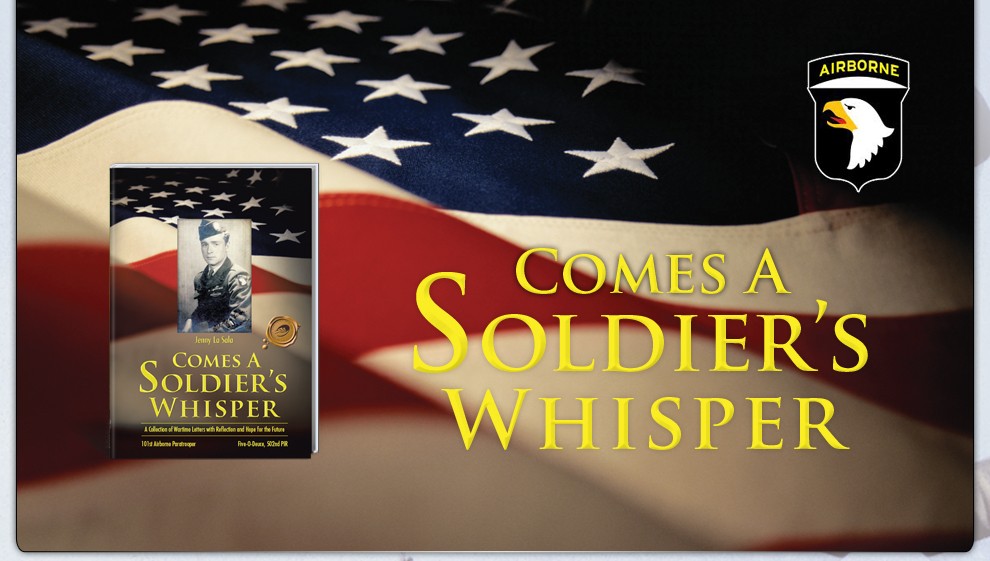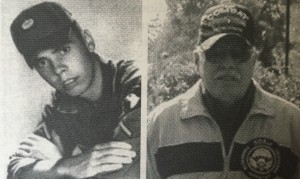


My name is Peter Griffin, and I am a Vietnam Veteran.
I served in Vietnam from July 1965 to June 1966 with the 1st Brigade (Separate) 101st Airborne. The two most highly contested actions I participated in were Operation Gibraltar and Operation Hawthorne.
The military taught me to do the best job I could so I would never have to look back with regret; be just and air with other people in all my endeavors and dealings with them; know the difference between true and false friends; and never forget those who have gone before me, especially those whose lies were cut short in the service of others.
My maternal grandfather, William J. Lacey, was a U.S. Army veteran of the Philippine Insurrection and the Spanish American War. My brother, John T. Griffin, served in the U.S. Navy during World War II. He then joined the Army and became an infantryman/paratrooper and was killed in action in the Korean War. My brother, William J. Griffin, Jr., served with A Company, 1/188th Parachute Infantry Regiment, 11th Airborne Division U.S. Army at Fort Campbell, Kentucky. He and other members of this unit were “atomic veterans” serving at Camp Desert Rock and Yucca Flats, Nevada, where they were exposed to 7 nuclear blasts in the first tests of close atomic support of ground troops. He died at the age of 57 after spending 25 years as inpatient at the VAMC in Canandaigua, New York, suffering from a host of physical and psychological disabilities.
I trained in heavy weapons with the MOS of 112, 106 Recoilless Rifle (RR) specialist. Strict discipline was the order of the day. It was common practice for the whole platoon to receive punishment if even only one of its members screwed up. I served in Vietnam from July 1965 to June 1966 with the 1st Brigade (Separate) 101st Airborne. The two most highly contested actions I participated in were Operation Gibraltar and Operation Hawthorne. The worst part was the deprivations of all kinds of comforts, constant exposure to the elements, and the need to eat cold, greasy, canned food, day in and day out. But the worst of all was the hunting and being hunted, not to mention the hidden mines and booby traps. My greatest fear was death, dismemberment, capture and torture.
No. I do not regret going to war. It was a duty and honor to serve my country and to help our nation’s allies in their quest to be free. The only regrets I have are that our people were not willing to support us, and an allied nation and its people fell to the invading communist forces as a result. America lost prestige in the eyes of the world, and our enemies sensed weakness on our part.
I received a warm, loving and private welcome home from my parents and the rest of my family. I became a full-time city police officer in Oswego, New York, when the war ended. I attended college part-time and after one evening class a few of us went to the Student Union bar on campus. They announced over the television that Saigon had fallen. All the students stood u, cheered, and drank a toast revealing in the success of their anti-war protests and efforts. I got up and walked out in disgust and revulsion! My time taking classes at that college ended soon after that. I did not feel I belonged there and never would.
Many civilian non-veterans probably think that we glorify war, no on the contrary, we hate it. We just can’t shake it and the horror that we relive every day.
~ Peter Griffin, Vietnam Veteran, 101st Airborne
Peter is the author of Thoughts, Memories and Tears AND When You Hear the Bugle Call. He also recently received the Conspicuous Service Star with 4 accoutrements and the Conspicuous Service Cross from the State of New York for his patriotic service.
It is a great privilege and honor to collect these stories from our veterans of all wars, none of whom reached out to me. I have found them to be a humble group of men and women. These stories are their stories.
~ Jenny Lasala
Please Visit Our Veteran Tribute Page: www.facebook.com/ComesASoldiersWhisper
www.VietnamAndBeyond.com
#VietnamVeterans #FamiliesServeToo #ComesASoldiersWhisper





